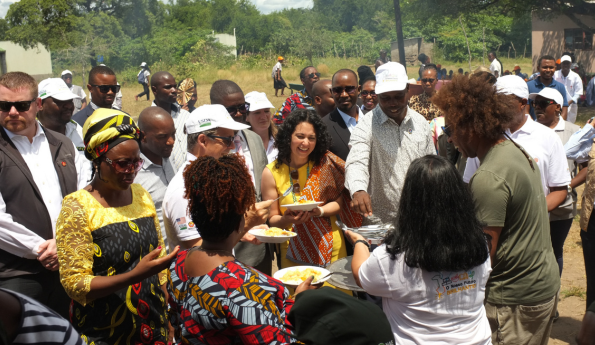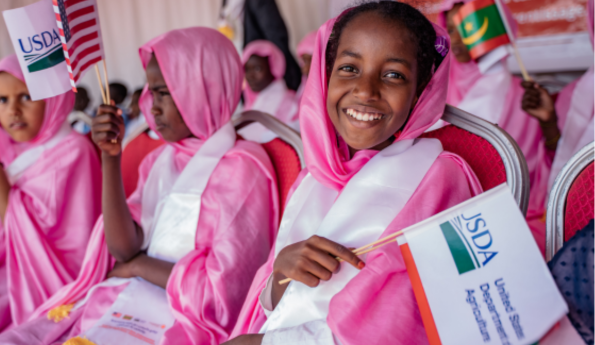On December 5th, Counterpart International’s Parceria Cívica para Boa Governação program (PCBG), in partnership with the MONITOR Network, held a national learning session for the Peaceful and Credible Elections in Mozambique project. The opening of the national session was chaired by Counterpart Director Charlotte Cerf, who thanked the members of the MONITOR Network and congratulated them on their achievements during the electoral period.
The national session brought together representatives from the five organizations which implemented the election project, a representative from the National Response and Reconciliation Committee, MONITOR representatives including the Secretariat team, Response and Reconciliation Committee representatives, and Counterpart International staff. The objective of the session was to analyze strengths, weakness, and what worked or what needs to be adjusted for MONITOR to continue to serve as a local monitoring body. The national session was preceded by three regional learning sessions, one in the central, northern, and southern regions (Nampula, Sofala, Maputo).
The national learning session also aimed to reflect on and consolidate the gains from project implementation; document the mechanisms and techniques used to overcome the challenges; document lessons learned by partners at the provincial and national levels to consolidate good practices that can be used in the future; provide a learning space between project partners; and make recommendations for the professionalization of organizations during the inter-election phase.
Counterpart received funding from the U.S. Agency for International Development (USAID) to implement the PCBG program, which aims to reinforce the impact of civic activism to improve responsible democratic governance.
The elections component of the PCBG program aims to promote peaceful, credible, and nonviolent general elections through monitoring and response to election violence. For this, six civil society organizations were selected to work on research (CEURBE) and monitoring and response at the provincial and district levels (CEDES, ANDA, PNDH, CESC, and CDD.) As a result, the MONITOR Network – a justice, peace, and democracy platform comprised of all the above organizations – was established. The platform is managed by the Secretariat (CDD). To support the Secretariat’s actions at the national level, a National Response and Reconciliation Committee (NRRC) was set with the responsibility of resolving conflicts at the national level and promoting advocacy campaigns for credible and peaceful elections.
“A lot of work was done during the election process. With over 40,000 national observers, we were not able to secure credible election results. We were unable to guarantee the credibility of the results. We have to see where and what failed,” said Augusta from CESC.
The Monitoring and Response project was implemented in 20 districts in Mozambique, in the provinces of Maputo, Gaza, Sofala, Manica, Zambezia, Nampula, and Cabo Delgado. For its implementation, local short- and long-term monitors were identified and trained and the Response and Reconciliation Committees (RRC) and National Response and Reconciliation Committee (NRRC) were identified, trained, and installed. The CRR and CNRR are responsible for the prevention, resolution, and mitigation of electoral conflicts.
Electoral monitoring was based on ELMO, an open access election observation technology from the Carter Center but adapted to the Mozambican context.




